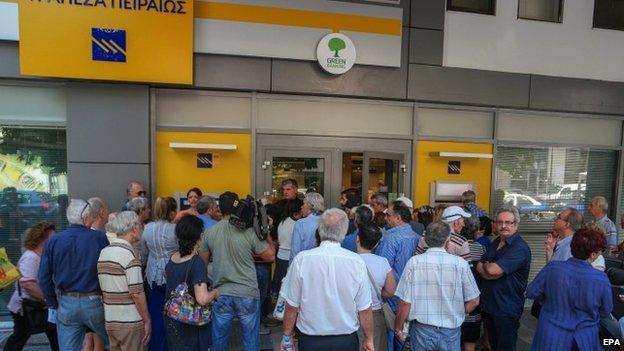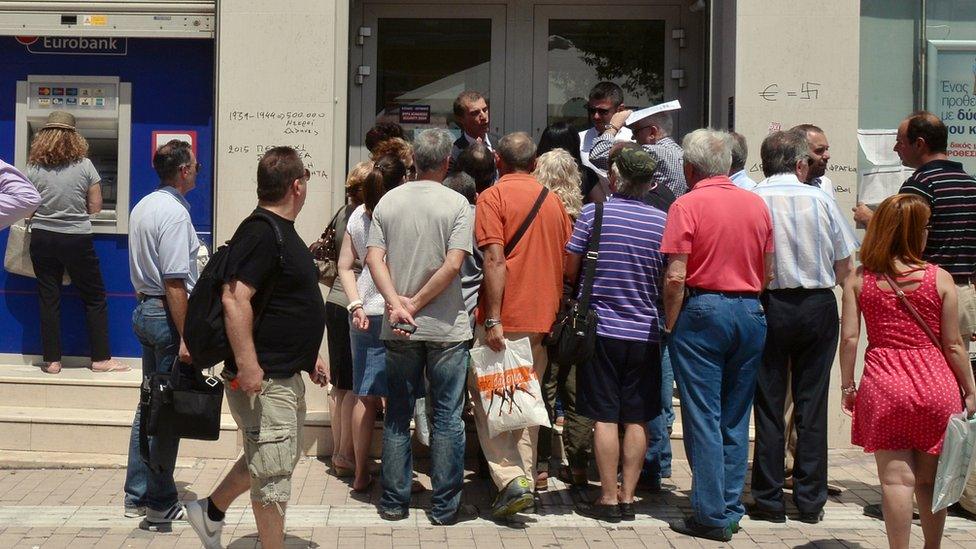How Greek vote will affect EU debate in UK
- Published

The economic risks to Britain of the Greek No vote are clear to see. But what of the political impact?
In the short term, the No vote will shape the context of this week's Budget. George Osborne will once again seize on the example of Greece to press home his argument for continued deficit reduction.
The chancellor will argue that it shows not only what happens to countries that do not get on top of their deficits, but also that greater fiscal restraint is needed to protect Britain against economic shocks such as the possibility of Greece exiting the eurozone.
Mr Osborne's opponents might wonder if such a resounding rejection of continued austerity by the Greek people is really to his advantage as he prepares to announce more spending cuts himself. But the chancellor is adamant.
As he told Andrew Marr on Sunday: "You look at the situation in Greece 鈥nd it is a reminder what happens when countries don't get their own house in order."
The more intriguing and longer term question is what impact the No vote has on David Cameron's attempts to reform the EU.
Some in government argue that the uncertainty and the possibility of "Grexit" helps the prime minister. They believe that if the eurozone has to integrate further to bind in remaining members, then the door opens to wider reform of the EU.
If the eurozone needs to change the EU's treaties, then potentially the prime minister would have a veto that he could use to make his own demands to change Britain's relationship with the EU.
Others argue that Grexit would make the possibility of Britain leaving the EU more tangible and thus act as a spur to other EU countries to compromise rather than complacently presume that a deal can be done that will satisfy all sides.
But there are risks for the prime minister. The No vote in Greece could make it harder for him to campaign to stay in the EU. People could look at the way the Greeks have thumbed their nose at Europe's elites and ask why they could not do the same.
They might look at the way some EU leaders have denigrated Greece, talking of replacing their elected government with a technocratic administration, and ask if Brussels should indeed be pulled down a peg or two.
Above all, the economic uncertainty of coming days could undermine the central argument of those wanting to stay in the EU; namely that voters' natural fear of change, the belief that Britain cannot cut itself off from the world, could be outweighed by a newer desire to cut Britain's ties from an economic deadweight. Eurosceptics often talk of Britain being shackled to a corpse.
What if voters begin to agree? Mr Cameron could suddenly find himself providing the British people with a referendum over the EU just as it becomes hugely unpopular.
It is, perhaps, too early to judge which of these arguments is most telling, not least because events in Athens are still playing out.
As one eurosceptic campaigner told me this morning, if Greece exits the euro and its economy gets even worse, then the case for Britain exiting the EU will only get harder.
- Published6 July 2015

- Published30 December 2020

